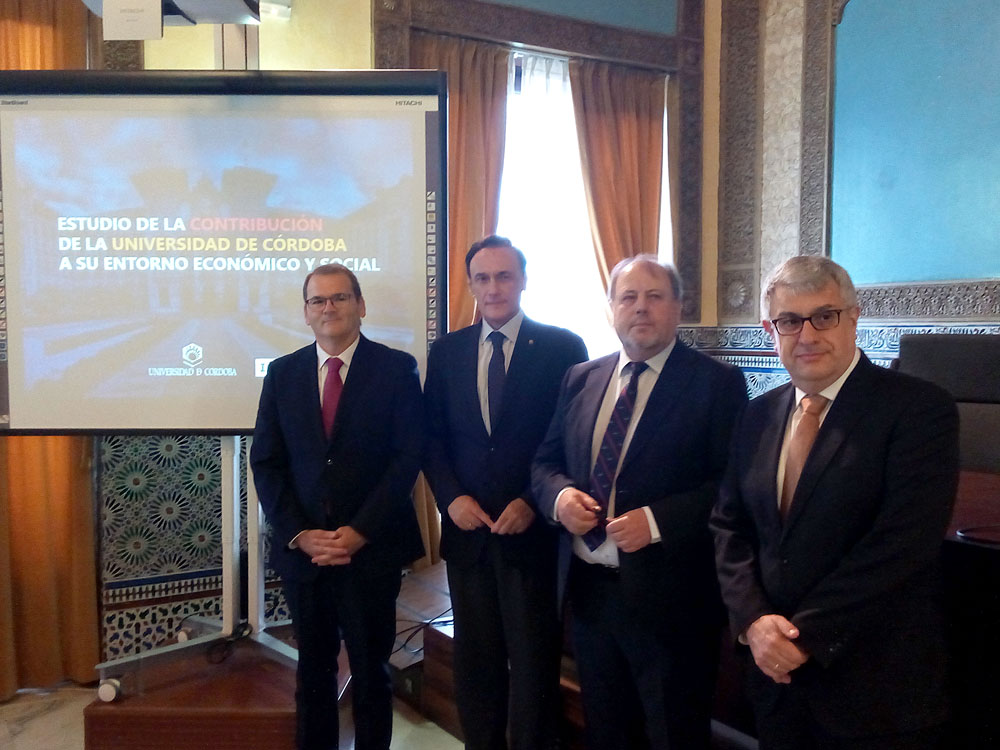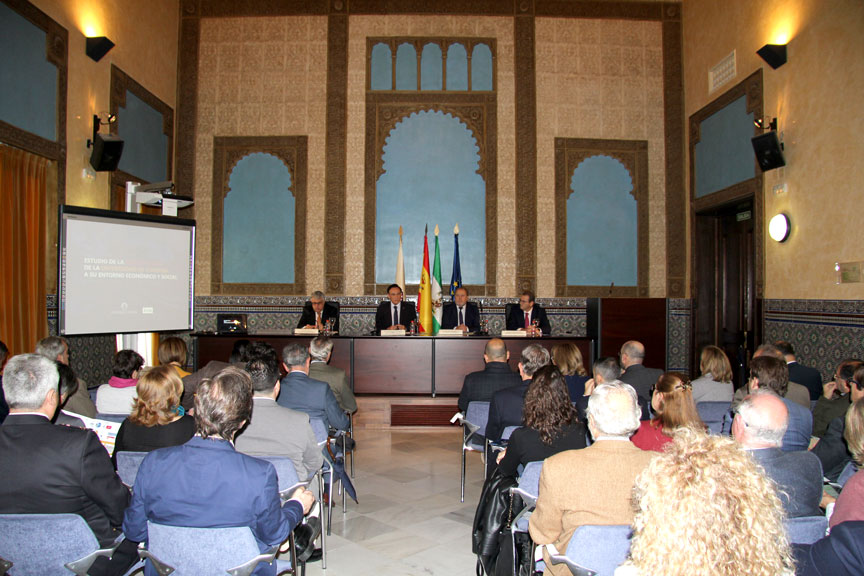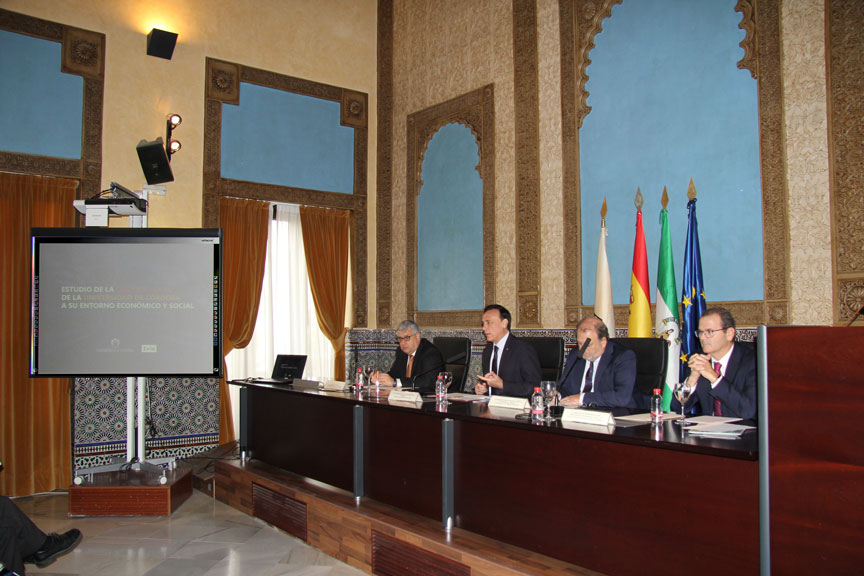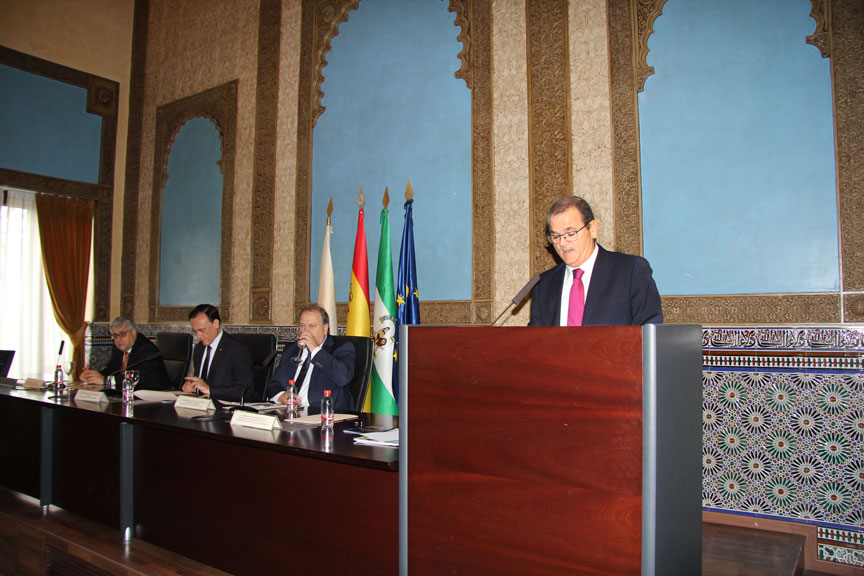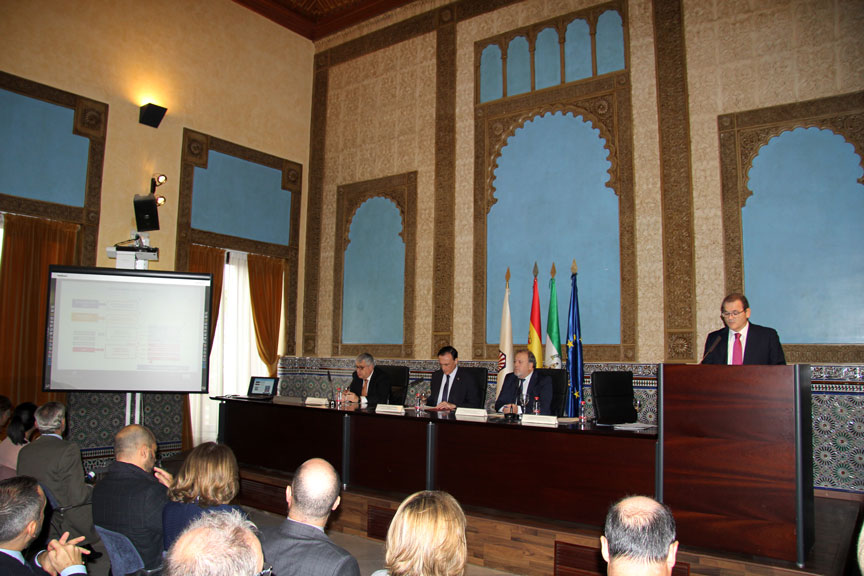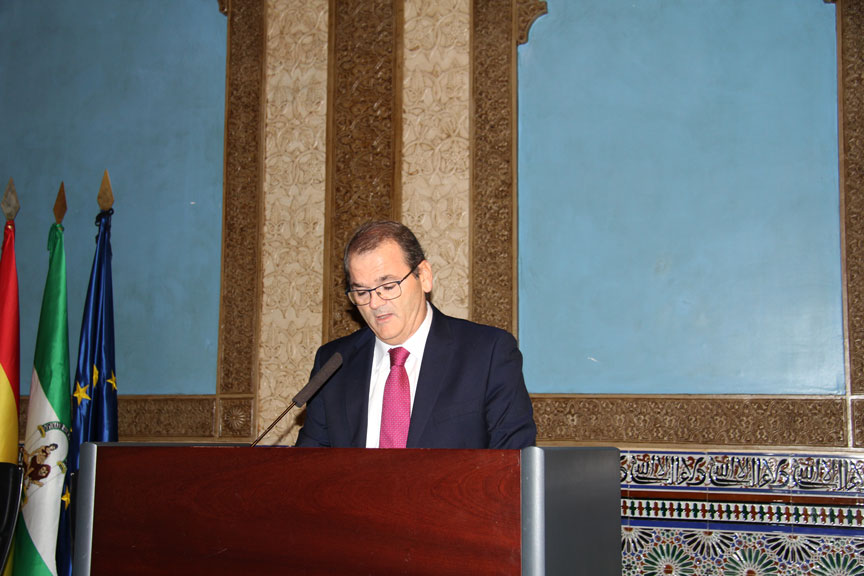News
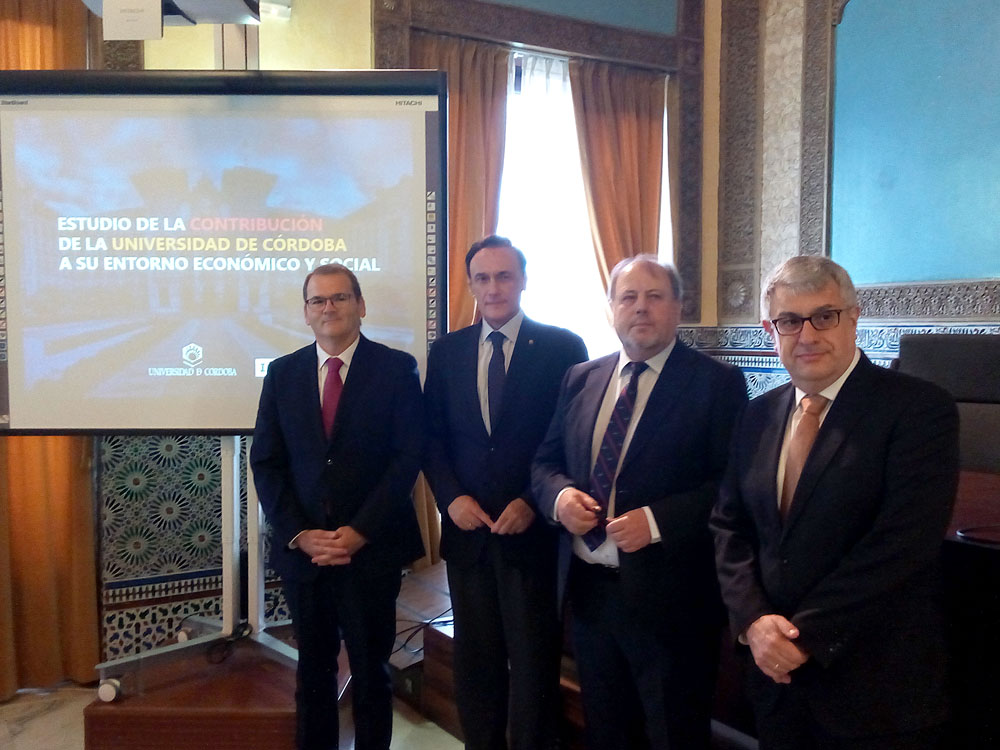
The University of Cordoba returns 2.4 euros to society for each euro received in public funding
The university contributes 8,677 jobs and 369 million euros to the Andalusian economy
The University of Cordoba (UCO) indirectly contributes 244.5 million euros to tax revenues in the Spanish region of Andalusia, through income and value-added taxes paid by its alumni. The university thus returns 2.4 euros to society for each euro in funding received from the public administration.
In addition to this long-term contribution, in 2017 UCO activities generated 369 million euros and 8,677 jobs in Andalusia. These figures represent 0.25% of GDP and 0.31% of employment in the region and 2.7% of GDP and 3.3% of employment in the province of Cordoba.
The data come from a study of the socioeconomic contribution of the UCO, presented today in Cordoba by the Valencian Institute of Economic Research (Ivie). The study — undertaken by Ivie researcher José Manuel Pastor leading a research team composed of Joaquín Aldás, Lorenzo Serrano, Eva Benages, Ángel Soler and Jimena Salamanca — analyzes both the short-term impact of the UCO on the Andalusian economy (the impact of UCO expenditure on production (sales), income and employment) and its long-term contribution to Andalusia socioeconomic development in terms of human and technological capital formation.
In relation to its core activity, the UCO annually generates 142.9 million euros in production, 92.1 million euros in income and 2,560 jobs (teaching, administrative and project-related employment) for the Andalusian education sector. In other activities associated with students, visitors and conferences, the UCO annually generates 573.9 million euros in production and 277 million euros in income and creates or maintains another 6,117 jobs.
In total, therefore, the UCO contributes 717 million euros in production, 369 million in income and 8,677 jobs to the Andalusian economy. The education sector benefits most from the UCO, accounting as it does for around a quarter of the income (27.7%) and a third of employment (33.6%). The trade, hotel, administrative, transport, artistic and recreational sectors are other beneficiaries.
Regarding the long-term impact of the UCO, the study points to human capital formation as especially relevant. In the province of Cordoba, the UCO is responsible for 9.1% of the human capital of the active population, valued at 1,377 million euros for the 2015/2016 academic year; it is also estimated that the university directly increases the activity rate by one percentage point and reduces the unemployment rate by 0.4 points. In absolute terms, were it not for the long-term contribution of the UCO, the active population in Andalusia would be reduced by 5,800 persons and 7,300 jobs would be lost.
The UCO also contributes to tax revenues through the additional income and value-added taxes paid by its alumni as a result of their higher earnings. Specifically, the university indirectly adds 244.5 million euros to annual tax revenues, thereby returning approximately 2.4 euros to society for each euro received in public funding.
The UCO also plays a key role in R&D in Andalusia, with expenditure between 2000 and 2016 creating technological capital worth 378 million euros.
The UCO, in short, contributes to regional economic growth by developing the human capital of the employed population, increasing the numbers of active and employed individuals and adding to technological capital through its R&D activities. Overall it is estimated that the per capita income of Andalusians would be 651 euros less without the UCO.
The UCO in figures
The UCO has 11 training centers (10 university centers and 1 attached centers) distributed in four campuses. Its 18,646 students are enrolled in 31 degrees (15,813 students) and 46 official master’s degrees (1,446 students). Almost three-quarters of undergraduate students (70.6%) are from the province of Cordoba, 18.6% are from other Andalusian provinces and 10.8% are from outside Andalusia, while 18.5% of master’s students are from other Andalusian provinces and 17.3% are from outside Andalusia. The share of master’s students from outside the province of Cordoba has grown by 23% since 2009.
Research activity has also intensified in the UCO: scientific production (number of publications) has grown by 77.8% since 2006 and by 79.1% in per capita terms (publications per academic). The average research capacity of UCO academics is, in fact, above the average for Spanish public campus-based universities, with the UCO representing 10.5% of scientific production and 8.2% of the value of R&D contracts of all the Andalusian universities.


